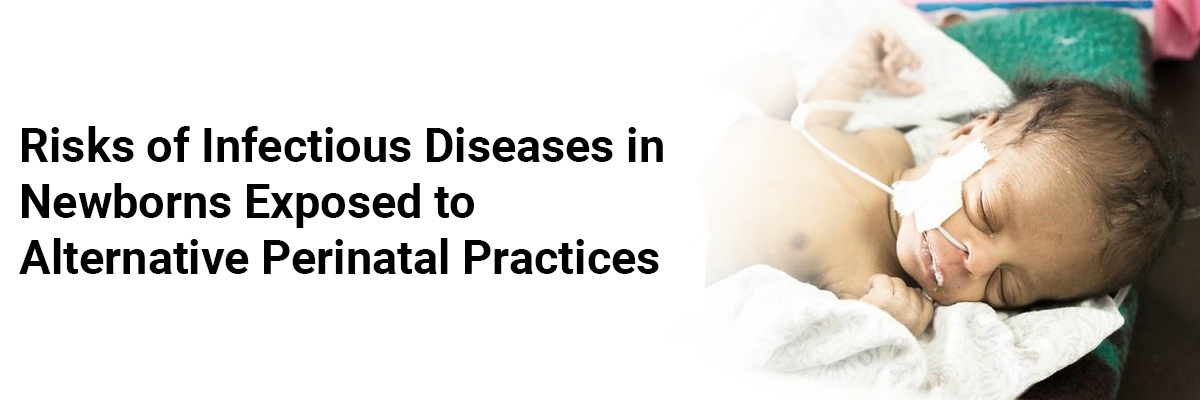
 IJCP Editorial Team
IJCP Editorial Team
Risks of Infectious Diseases in Newborns Exposed to Alternative Perinatal Practices
Numerous alternative peripartum and neonatal practices are nowadays introduced in delivery settings. Pediatric providers may be queried about these practices during prenatal counseling, or they may meet situations in which these practices have already occurred.
Knowledge about the risks and benefits associated with these alternative practices permits the pediatric practitioner to provide balanced education and counseling to families and perform appropriate evaluation and treatment when indicated.
A recent clinical report discussed these practices and summarized the statement for the pediatric practitioners as follows-
- Water immersion for labor and birth may improve the comfort of the pregnant person in the first stage of labor but may render no benefit for the second stage of labor or delivery. Furthermore, such practices may be associated with potential neonatal infections such as with Legionella and Pseudomonas species, which are rare but serious.
- Vaginal seeding may expose infants to vaginal pathogens like GBS or HSV and has shown no benefits. Evaluate the symptomatic infants born by cesarean section after exposure to vaginal seeding similar to those who are delivered vaginally.
- Umbilical non-severance has yet not demonstrated any benefit, rather may increase the risk of neonatal sepsis due to the presence of necrotic umbilical or placental tissue.
- Avoid Placentophagy as there exists no evidence of benefit to the caregiver, and a case report links this to the occurrence of recurrent GBS sepsis in a neonate. Evaluate the symptomatic infants exposed to this practice the same as other neonates.
- The birth dose of HepB makes a critical safety net for the prevention of HBV infection, So discourage any nonmedical deferral of the birth dose.
- Ocular prophylaxis is useful for treating some causes of ophthalmia neonatorum, especially in high-risk situations, like limited prenatal testing for causative organisms in high-risk populations and in areas with high endemicity. Adequate prenatal testing can markedly reduce the risk of ophthalmia neonatorum. Consider deferral of ocular prophylaxis in low-risk situations, however, this may be affected by state legislation.
- Delayed bathing may benefit in promoting the initiation and exclusivity of breastfeeding. Discourage delayed bathing in neonates exposed to active HSV genital lesions or with a known history of HIV infection in the birth parent.
Nolt D, O’Leary ST, Aucott SW. AAP Committee on Infectious Diseases, AAP Committee on Fetus and Newborn. Risks of Infectious Diseases in Newborns Exposed to Alternative Perinatal Practices. Pediatrics. 2022;149(2):e2021055554

IJCP Editorial Team
Comprising seasoned professionals and experts from the medical field, the IJCP editorial team is dedicated to delivering timely and accurate content and thriving to provide attention-grabbing information for the readers. What sets them apart are their diverse expertise, spanning academia, research, and clinical practice, and their dedication to upholding the highest standards of quality and integrity. With a wealth of experience and a commitment to excellence, the IJCP editorial team strives to provide valuable perspectives, the latest trends, and in-depth analyses across various medical domains, all in a way that keeps you interested and engaged.




















Please login to comment on this article